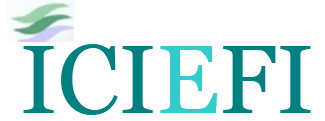The editor is the person in charge of overseeing the manuscript submission process until it is accepted for publication by their scientific discipline. To acquire a high-quality article, editors also make comments, recommendations, and judgments to change, approve, or reject the article. This policy is based on the COPE code of conduct as well as best practice guidelines.
Selecting Reviewers
- Editors should make certain that the right reviewers are chosen for submissions (i.e. individuals who can judge the work and are free from disqualifying competing interests).
- Editors should choose at least two reviewers to provide a report (the default on Manuscript Central is three) and make sure that not all of the reviewers are selected by the paper's authors unless there is a compelling reason.
- Editors should stop using reviewers who are habitually rude, low-quality, or late with their evaluations.
- Editors should look for possible new reviewers from a variety of sources (not just personal contacts) (e.g. author suggestions, bibliographic databases).
Review Process
- Editors should respond to any articles allocated to them as quickly as possible, aiming for an initial decision within a month.
- Editors should make every effort to handle all papers given to them, regardless of topic area, and only in extreme cases may a manuscript be returned to a Section Editor for reassignment. Section Editors strive to allocate articles correctly while also balancing the workloads of individual editors throughout the Editorial Board; yet, it is sometimes inevitable to assign a paper whose focus is outside of the allocated editor's.
- Editors should provide written feedback to authors on any decisions they make, even if the conclusion is evident in light of the reviewers' remarks, in which case one or two sentences summarizing the reviewers' comments is sufficient.
- Editors should be prepared to justify any significant variation from the peer review procedure as specified (see Peer Review Process)
- Editors should require reviewers to identify any potential competing interests before agreeing to examine a proposal,
- Editors should keep an eye on peer reviewer performance and take actions to guarantee that it is up to par.
- Editors should urge reviewers to provide feedback on their work.
- Submissions bring ethical issues as well as the possibility of research and publication dishonesty (e.g. unethical research design, inappropriate data manipulation, and presentation).
- There is no conflict of interest between authors, editors, and reviewers when it comes to the originality of submissions
- Being aware of duplicate publication and plagiarism.
Responsibilities of the Editor-in-Chief
The Editor-in-Chief is the journal's leader and is primarily accountable for the journal's scholarly excellence. The position of Editor-in-Chief is one of distinction. The Editor-in-Chief is in charge of supporting the Editorial Office with journal management, which includes:
- Scientific choices about the scope of the journal
- Inviting eminent scientists to join the editorial board,
- Recommending special issue ideas,
- Assisting Guest Editors with special issue preparation, and
- Overseeing the editorial process for individual submissions (mainly by taking the final decision whether a paper can be published after peer-review and revisions).
Responsibilities of Editorial Board Members
Members of the Editorial Board have the following responsibilities:
- Each year, he or she is asked to assess one or two manuscripts and may be asked to assist in the editing of a special issue on a topic related to his or her research interests.
- From time to time, I'm approached for comments or feedback on new regulations affecting the journal.
- Contribute to the journal's promotion among their colleagues or at conferences. E-mail is the primary mode of communication with Editorial Board members.
- If a member of the Editorial Board feels overburdened by demands from the journal's Editorial Office, he or she may resign at any moment.
Responsibility for the Special Issue as a Guest Editor
Special issues are usually edited by a Guest Editor who invites colleagues from the same study field to write an article on a topic that is relevant to them. The Guest Editor collaborates with the Editorial Office to create a description and keywords for the web page for the special issue. We hope to publish at least ten pieces per special issue. Frequently, the Guest Editor will also contribute an editorial to the special edition. The Guest Editor normally decides whether papers submitted to his or her special issue will be accepted (depending on the journal's policy; in some situations, they may make a suggestion to the Editor-in-Chief). The papers in a special issue are published online in the journal as soon as they are accepted, and they are aggregated on the special issue homepage. This implies that authors who submit material will see their work as soon as it is accepted, even if other papers in the special issue are still being processed.
Guest Editors should avoid having conflicts of interest with authors whose work they are evaluating, such as if they are from the same university or work closely together. Final acceptance decisions for submitted papers will be made by the Editor-in-Chief or an appropriate editorial board member in this situation.












1.jpg)